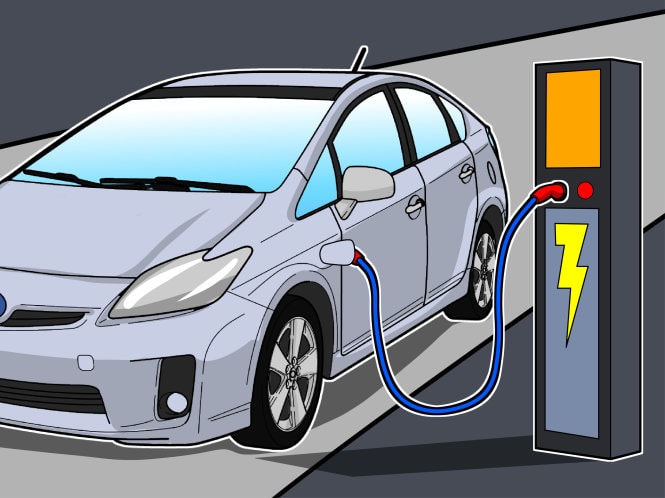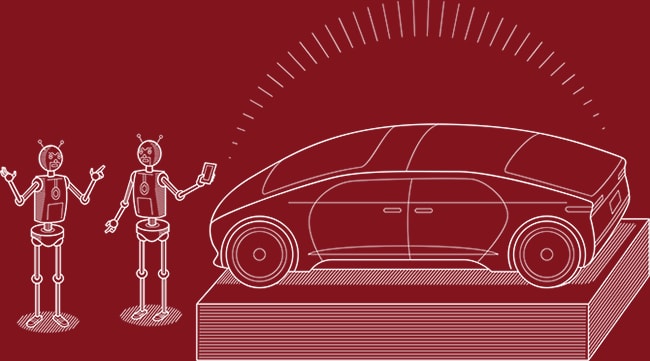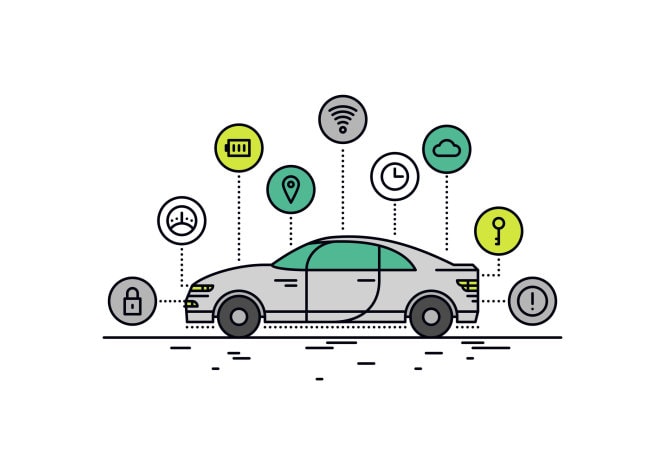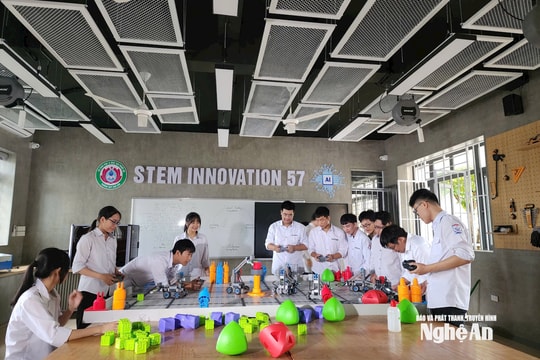Why are future cars said to be 'technological wonders'?
Cars with groundbreaking designs, electric, internet-connected, with or without a driver behind the wheel... The future options for the auto industry are ambitious but not without challenges.
 |
| Photo: automo |
It can be affirmed that the future of cars will come from changes in design (optimizing interior and exterior), fuel source (electricity or biofuel), operation (self-driving) or even "transforming into a digital platform", as the report of the same name by BI Intelligence Research Company stated.
The Connected Car Report published last year by research firm Strategy& suggested that the change will not only be in the car itself, but also in “car culture” – the idea of how cars should be owned and driven – referring to ride-sharing or online booking apps.
The “car of the future” game is more exciting than ever, with big companies spending heavily on research and development.
In addition to traditional car companies, technology giants are also getting involved, typically Apple with its iCar self-driving car project, with a rumored investment of up to 10 billion USD, or Google with its self-driving cars that have now run a total of 3 million miles (4.8 million km). But the results of these efforts are still a mixed picture of light and dark.
 |
| Charge your car |
Choose electric car or gasoline car?
Electric vehicles replacing fossil fuels to reduce emissions is not a new idea.
Eco-friendly cars have been dotting the streets of some countries, but as Quartz noted on October 22: “Aside from the excitement surrounding companies like Tesla, the electric vehicle market has yet to erode the market share of gasoline-powered cars and trucks.”
Specifically, of the approximately 17.5 million vehicles of all types sold in the US each year, less than 1% are fully electric.
But this reality will soon improve as the UK, France, Germany, India and Norway are aiming to “electrify” all vehicles in the next few decades and many other countries have also set ambitious targets for electric vehicles, according to Quartz.
Not only tech billionaire Elon Musk's Tesla focuses on producing electric cars, "traditional" car companies have also planned to switch to all-electric cars in the next few decades.
In July, Volvo announced it would stop producing gasoline-powered cars after 2019, while Ford plans to invest $4.5 billion in electric vehicles and launch 13 eco-friendly models in the next five years. General Motors also announced it would have more than 20 electric models by 2023.
But just because carmakers are announcing the switch to batteries doesn't mean the internal combustion engine is dead.
The reasons, as Michelle Krebs - senior analyst at car trading platform AutoTrader - answered on CNBC on October 22, the main barriers are the lack of infrastructure (charging stations instead of gas stations), battery price and public acceptance.
Krebs stressed that consumer acceptance is the deciding factor in whether electric vehicles can hit the streets or not. In fact, most users in the US are not yet ready to “plug and drive”.
“When they answer surveys, (consumers) say they are interested in electric cars, but when it comes down to it, they're going to buy a gas-powered car,” Krebs said.
Developing charging stations for electric vehicles is a “chicken or egg” dilemma: as more electric vehicles are on the road, infrastructure will develop, but infrastructure needs to be in place to encourage people to switch to electric vehicles.
According to Krebs, the challenge of battery packs for electric vehicles is not only to reduce production costs, but also to reduce weight and size so that they can be installed in many different types of vehicles.
Assuming that all of the above problems have solutions, let's say that by 2020, when electric cars start to be widely displayed in showrooms and gasoline prices are still cheap, it will be very difficult to convince consumers to give up their beloved gasoline-powered cars and buy electric cars.
“It's an economic issue,” Krebs explains. “People will ask themselves whether electric cars will make their lives better, or make getting around easier.”
 |
Will Internet-connected cars take the lead?
In addition to electric vehicles, the modern auto industry also has two terms: connected car and autonomous vehicle (or self-driving car).
A connected car is a vehicle with an internet connection and various sensors that can receive and transmit signals, sense the surrounding environment, and interact with other vehicles or systems.
Meanwhile, a self-driving car is a vehicle that operates without a human driver. So, a self-driving car is definitely a connected car, but a connected car is not necessarily an autonomous car.
While electric vehicles are still struggling, the report cited by BI Intelligence stated that connected cars will create real changes for the auto industry in the future.
“Consumers will spend more time in vehicles with more connectivity options, allowing them to use familiar and favorite services right in the car,” the report said.
Similarly, Strategy&'s Connected Cars report also stated that connected cars are not only more entertaining, but also more efficient and safer than traditional cars because they will "free up drivers, giving them more time to do other activities on the go."
The benefit of connected cars is that they provide a wealth of useful information for drivers to make safe and convenient decisions for their journey.
GPS navigation systems, real-time traffic monitoring, hazard warnings, dashboards that accurately display the status of the fuel tank or engine are common examples of connected cars today.
Technological advances today also allow cars to self-correct while on the highway, warn drivers when they start to drift or slow down when they detect they are getting too close to the car in front. According to the report,
Strategy& says the current car is already “a technological marvel”, but new innovations will continue to completely change the nature of a car in the future, turning it into “a vehicle with artificial intelligence and the ability to learn to recognize who is in the car”.
 |
A sci-fi scenario that is entirely possible: when you sit behind the wheel, the car adjusts the driver's seat to your preferred position, changes the cabin lighting, and turns on the TV to the channel you want to watch.
However, the report also stressed that although the car of the future “has begun to take shape in various forms”, it must be admitted that they “will not be able to appear commonly on the streets or highways for at least the next 10 or 20 years”.
Like electric cars, connected cars also face many challenges, the biggest of which is security. It would be a real nightmare if bad guys could interfere with the system and control how our car operates, or disable safety features.
A car that is speeding down the road and suddenly stops because a hacker interferes with the automatic braking system will cause a series of accidents, or at least a traffic jam. Once infiltrated into the car system, hackers can steal the driver's personal information, or expand their attack to the systems of the car's manufacturers or parts suppliers.
The risk that a car can be easily hacked could also reduce consumer confidence, making them hesitate before buying a modern, connected car.
What about driverless cars? While Tesla, Google, and many others continue to make progress toward that goal, there are roughly equal numbers of people who believe that self-driving cars will arrive within the next few decades and those who think it will never happen.
According to Strategy&, if we believe this future will come true, we need to wait for key technologies such as artificial intelligence, machine learning, human-machine interfaces and related infrastructures to reach further maturity.
According to Tuoi Tre
| RELATED NEWS |
|---|








